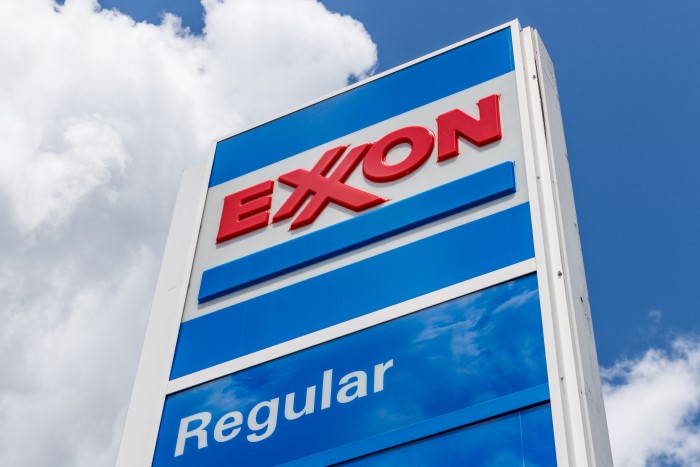Exxon to Begin Certifying Some Shale Gas Emissions Amid Investor Pressure
HOUSTON (Reuters) — Exxon Mobil Corp on Tuesday said it will begin measuring methane emissions from production of natural gas at a New Mexico facility, joining several shale gas producers seeking to provide the data to buyers.

The largest U.S. oil company, under pressure from investors and environmentalists to address climate concerns, follows shale producers including EQT Corp in offering independently verified emissions data to buyers seeking to reduce their own carbon footprints.
"Certifying our natural gas will help our customers achieve their goals," Bart Cahir, a senior vice president at Exxon Mobil, said in a statement.
Exxon said it had signed an agreement with independent measuring firm MiQ to certify 200 million cubic feet of natural gas per day produced at its Poker Lake facilities in New Mexico.
Poker Lake was chosen in part for having already in place technology solutions to detect leaks and reduce methane emissions. Exxon said it is evaluating additional next-generation applications in the region to mitigate emissions, including satellites and artificial intelligence.
The assessment by MiQ - a partnership between RMI, formerly the Rocky Mountain Institute, and sustainable development consultancy firm Systemiq - will be available to clients in the fourth quarter, Exxon said.
The initiative could be extended later to other shale production areas including Appalachia and Haynesville, it said.
MiQ has signed similar deals with U.S. shale producers Chesapeake Energy Corp. and Northeast Natural Energy (NNE).
Liquefied natural gas (LNG) companies including NextDecade Energy Inc. also said they plan to offer greenhouse gas emissions data to clients.
Earlier this year a tiny activist hedge fund took three seats on Exxon's board. Its climate strategy was central to the campaign.
Exxon this year began disclosing the emissions that result when customers use its products such as gasoline and jet fuel.
The company by 2025 plans to reduce greenhouse gas emissions from its oil and gas production by 15-20% versus 2016 levels.
Related News
Related News

- Keystone Oil Pipeline Resumes Operations After Temporary Shutdown
- Biden Administration Buys Oil for Emergency Reserve Above Target Price
- Freeport LNG Plant Runs Near Zero Consumption for Fifth Day
- Enbridge to Invest $500 Million in Pipeline Assets, Including Expansion of 850-Mile Gray Oak Pipeline
- Williams Delays Louisiana Pipeline Project Amid Dispute with Competitor Energy Transfer
- Evacuation Technologies to Reduce Methane Releases During Pigging
- Editor’s Notebook: Nord Stream’s $20 Billion Question
- Enbridge Receives Approval to Begin Service on Louisiana Venice Gas Pipeline Project
- Russian LNG Unfazed By U.S. Sanctions
- Biden Administration Buys Oil for Emergency Reserve Above Target Price




Comments